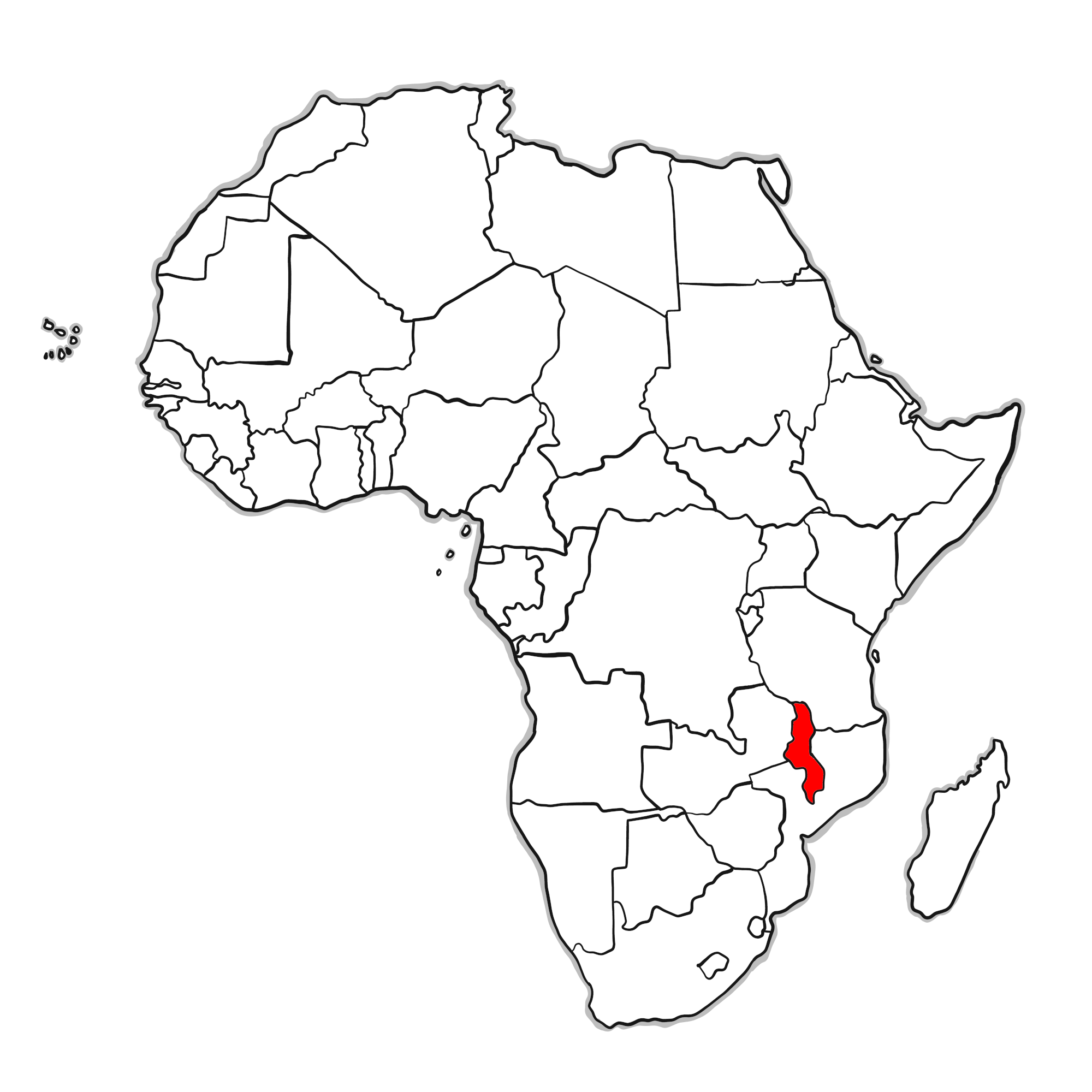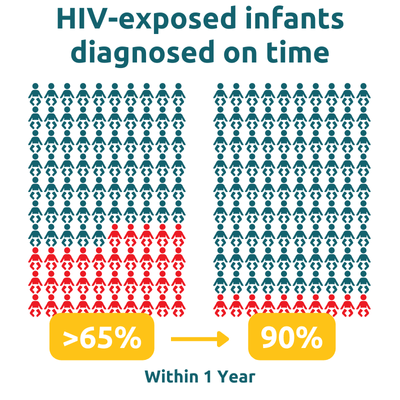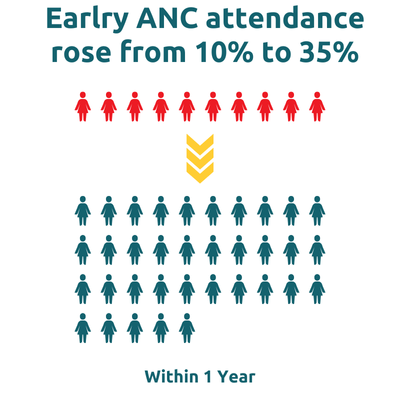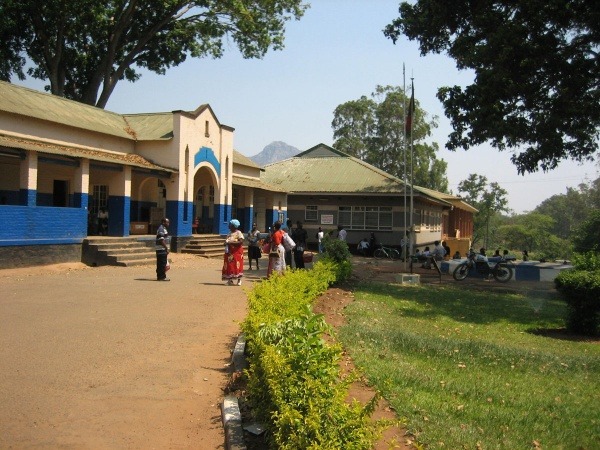Impact Stories
The power of a Transformed Mind
How Spark Health Africa’s Transformative Leadership & Culture Change program transformed an individual’s life.

Challenge
Located on the shores of the iconic Lake Malawi lies Nkhotakota, one of eight districts in the central region of Malawi. Out of this district emerges a remarkable journey of transformation of one medical assistant, Kingsley Makwale, whose mind and indeed, professional life was transformed by participating in Spark Health Africa’s Transformative Leadership and Culture Change (TLCC) program.
Before participating in Spark Health Africa’s Transformative Leadership and Culture Change (TLCC) program, Nkhotakota’s district health management team (DHMT) faced low morale, poor performance, and frequent stockouts. Without leadership coordination to provide a framework to guide the entry and operations of implementing partners, duplication of efforts, ineffective utilization of resources and a siloed work culture were rife in this district.
This led to demotivated healthcare workers, inefficient resource use, and a fragmented work culture. For many, daily work felt as uninspiring as watching paint dry, devoid of intellectual stimulation or personal fulfillment.
However, Makwale’s participation in the TLCC program ignited a remarkable change, reshaping the district’s approach to health service delivery.
Intervention
Spark Health Africa’s TLCC program, formerly the Partnership for Management Development (PMD) program, launched in 2013 across all eight districts of Malawi’s Central Region. The goal was to transform public health systems by empowering district health management teams (DHMTs) with vital leadership and management skills. Amid Malawi’s adoption of Option B+—offering universal life-long ART for all HIV-infected pregnant and breastfeeding women—the TLCC program strategically used this initiative to gauge its impact.
Prioritizing team development over individual enhancement, the program ensured that new mindsets and work cultures took root and flourished. Multi-disciplinary district teams of at least eight managers participated in intensive training workshops, fostering cohesive unit growth.
Additionally, TLCC’s substantial investment in on-the-job coaching turned skills into competencies, while frequent review meetings cultivated accountability, encouraged the sharing of best practices, and promoted collaborative problem-solving.
Nkhotakota district was unique among the DHMTs attending the igniting workshops, as only three managers from the district were trained, compared to at least eight from other areas. Aware of this limitation, the trained managers from Nkhotakota immediately began expanding their team upon returning from the workshop.
They integrated additional health workers into the TLCC, a process known as “co-opting”,
which was crucial for the TLCC program. This integration aimed to extend the Spark Health Africa philosophy by onboarding more health workers, enhancing their skills, and fully incorporating them into the TLCC team. Kingsley quickly joined as a co-opted member, seizing the opportunity to develop his technical and leadership skills through the TLCC program. Selected by his supervisor, nursing officer Jotham Nyasulu, who had attended the TLCC training,
Kingsley found the prospect both
exciting and daunting.
The program offered a chance to learn and showcase his abilities, but the involvement of district, regional, and national managers raised the stakes. Gaining the commitment of Kingsley and other co-opted members was not difficult, given the TLCC’s goal to improve service delivery through homegrown solutions developed by team members. The integration involved a structured mentorship process by the trained members and the Spark Health Africa team, helping the co-opted members embody the transformative leadership philosophy.
The support provided by Spark Health Africa was crucial in empowering the co-opted members. Monthly virtual mentorship sessions with a Spark mentor and the team created a powerful learning platform. As Kingsley remarked,
“Spark’s support was instrumental, offering practical assistance and enabling team members from all districts to learn how successful Spark members achieved their goals despite limited resources and challenging conditions.”
The Nkhotakota team, undeterred by connectivity issues, creatively leveraged social media platforms like WhatsApp to ensure the mentorship sessions continued seamlessly.
The Spark approach’s review meetings were a game changer. These gatherings became a showcase for results, a learning ground for best practices, and a launchpad for adopting top interventions. They also fostered sustainability initiatives and brought senior government officers into the fold to influence policy and support districts with specific challenges. Unlike typical meetings dominated by senior managers, Spark’s review meetings empowered junior health workers to take the lead. This shift not only boosted their confidence but also inspired Kingsley to fully engage in the program. Kingsley’s active participation allowed him to demonstrate his skills and gain recognition from senior officers, opening doors for mentorship roles and involvement in national program activities.
Kingsley’s transformation was gradual but profound.
Through data analysis, he realized his actions were impacting health outcomes negatively.
“I was working at ART clinic by then, and my role was limited to prescribing medications, neglecting crucial steps like dry blood sample (DBS) collection and viral load monitoring. This realization ignited my commitment to embark on my professionalism journey with the Spark team.”
Outcomes
The impact of the Spark approach and the team transformation was clear. Within a year of implementing quality improvement projects, the percentage of HIV-exposed infants diagnosed on time increased from under 65% to 90%, surpassing the national target. Early ANC attendance rose from 10% to 35%, and the ascertainment of HIV status among pregnant women reached 98%.


The national department of AIDS recognized these achievements by awarding the district a certificate of excellence for the ART program. This improvement in key indicators, which had previously been underperforming, significantly boosted team morale, instilling confidence and a sense of empowerment to address service delivery challenges.
Kingsley credits his transformation in professionalism and dedication to quality improvement to the Spark approach.
The training and mentorship he received shifted his mindset towards enhancing service delivery through Spark principles. The unwavering support from the district health management team underscored the immense value they placed on the Spark initiative.
The Impact
Kingsley’s involvement in the Spark initiative developed essential competencies in program management, such as root cause analysis, data utilization, and fostering teamwork and collaboration. These skills opened up career opportunities beyond his initial role as a medical assistant in the Ministry of Health, leading him to his current position as Coordinator of Care and Treatment at EGPAF.
At Dignitas International, Kingsley successfully coordinated HIV testing campaigns, achieving a 96% linkage rate. At Baylor College of Medicine Children’s Foundation, he helped expand a pediatric-centered care model through the establishment of teen clubs. While with MSF, he piloted an innovative advanced HIV package, which was later scaled to another district and incorporated into national guidelines.

Central region, Malawi
(2013-2014)
In his current role at EGPAF, Kingsley continues to demonstrate the power of a transformed mindset by piloting PreP uptake initiatives, with plans for government scaling.
Reflecting on his experiences, Kingsley has learned several key lessons:
